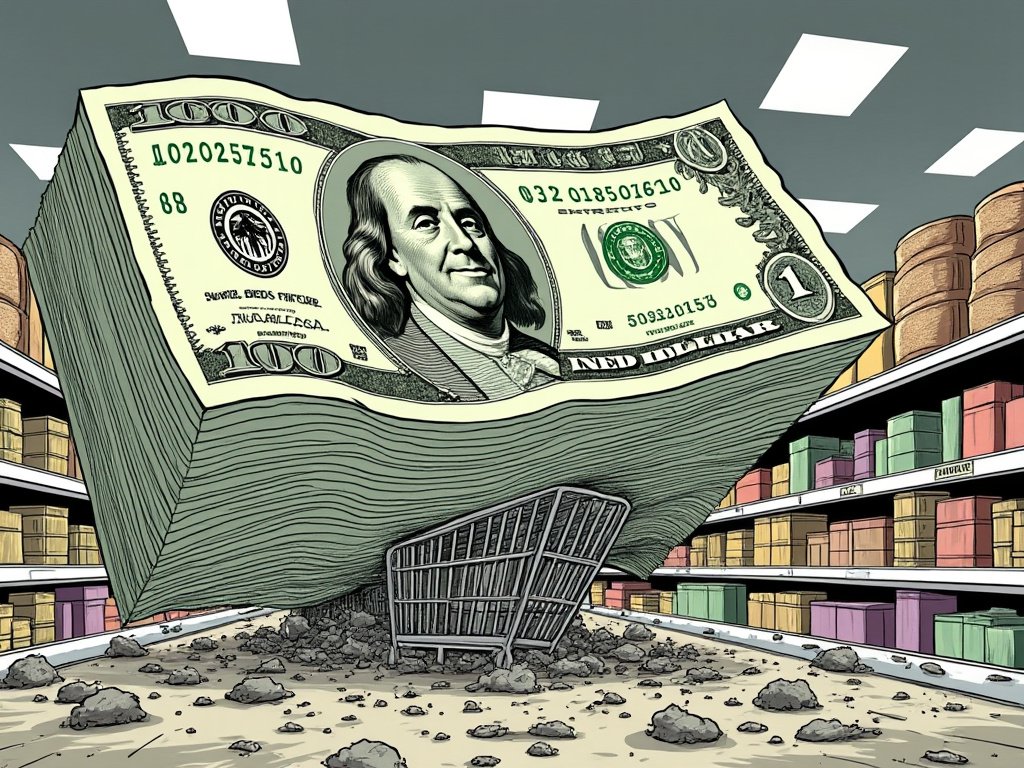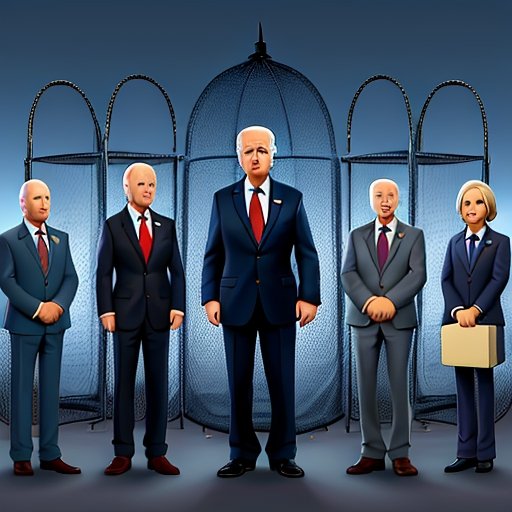Local grocery store owners struggling with inflation might face price caps to curb “price gouging” if Vice President Kamala Harris becomes the next president.
As part of Harris’ economic agenda, she plans to implement federal price controls on groceries and other everyday expenses. But a local grocery store owner in Chicago – where the Democratic National Convention is underway – says he’s not sure “what we’re trying to control.”
“Most of the grocers that I know and associate with are very conscious of having products that we’re pricing things according to what we pay for them, not necessarily as to what the market bears,” HarvesTime grocery store owner Hristos “Chris” Dallas said in an interview Monday.
“It doesn’t exactly go the same with other parts that affect the pricing, though. So, for example, we’re standing in front of the refrigerator, and this refrigerator cost me more when I installed it a few years ago than the first store that I opened up in the entirety of the store,” Dallas said. “So, what exactly are we trying to control?”
Harris’ Price Control Plan: A Recipe for Disaster?
The Harris campaign announced on Wednesday that she would institute a “federal ban on price gouging on food and groceries” as president in an attempt to stop “big corporations” from taking advantage of consumers. It seems the Vice President has decided to dust off the old Democrat playbook of government intervention, apparently forgetting the disastrous results of similar policies throughout history.
Remember the 1970s gas shortages? Those weren’t caused by a lack of oil, but by government price controls. It’s like déjà vu all over again, but this time with your grocery cart!
The Price Control Paradox
- Intended to help consumers
- Often leads to shortages
- Can create black markets
- May cause hoarding
- Historically proven to be ineffective
Critics have blasted the policy and have said such measures could lead to shortages, black markets, and hoarding, reflecting past distortions seen when countries have attempted to control prices by decree. It’s almost as if Harris skipped her Economics 101 class – or maybe she was too busy practicing her infamous cackle to pay attention.
Small Business Perspective: The Real Cost of “Gouging”
Dallas, a proponent of the “small mom-and-pops” against conglomerate takeover, questioned whether the issue of so-called “price gouging” is simply the difference between production costs and selling prices, or if it includes all the factors involved in getting the product to market.
“A tomato, for example, that’s grown in southwest Michigan – a few years ago there was a certain wage and there were employees to be had in order to do that job in picking. Today, we have to pay twice or three times more in order to get the same product. So, how can we say or where do we say that there is price gouging or natural price increase? So, I’m confused as to what would constitute gouging,” Dallas, who neither identified as a Republican or a Democrat, said.
It’s refreshing to hear a voice of reason amidst the cacophony of Democrat rhetoric. While Harris is busy playing economic whack-a-mole, small business owners like Dallas are grappling with the real-world consequences of misguided policies.
Inflation and Politics: A Toxic Mix
“Inflation always impacts, but politicians have a lot to do with inflation,” Dallas said, adding that former President Trump’s policy proposal for across the board tariffs would also raise the cost of products abroad and make goods more expensive.
“I don’t begrudge anybody for making a decent wage, but artificially increasing minimum wage increases everybody’s wage,” he said. “So, when you have a product that’s produced that it would take, for example, $3 labor costs to make it the next thing you know is that $3 becomes five or $6 per item that’s going to be affected, whether it’s food or whether it’s clothing or whatever have you, the end price is going to increase.”
“If something goes higher one end, it will affect something at a different end,” he said.
Dallas’s comments highlight the interconnected nature of the economy – something that seems to elude Harris and her fellow Democrats. It’s as if they believe they can simply wave a magic wand and make inflation disappear, without considering the ripple effects of their policies.
Republican Response: Calling Out “Lunatic Behavior”
While Dallas said he’s against price controls at the grocery store level, he added some level of price-control regulation may be necessary to prevent large grocery chains from stomping out small, independently-owned stores in rural areas.
“It’s a battle that we fight every day,” Dallas said of rising product costs.
Harris’ price gouging proposal would give authority to the Federal Trade Commission and state attorneys general to impose harsh penalties on companies for setting excessively high prices. Republican economists have criticized the move, calling it “Marxist” and “lunatic behavior.”
It’s hard to argue with that assessment. The last time we checked, centrally planned economies weren’t exactly known for their abundance of consumer goods or thriving small businesses. But hey, who needs food when you have government-mandated “fair” prices, right?
Republican vs. Democrat Economic Approaches
| Republican | Democrat |
|---|---|
| Free market principles | Government intervention |
| Lower taxes | Higher taxes |
| Deregulation | Increased regulation |
| Fiscal responsibility | Increased government spending |
Economic Reality Check: Prices vs. Costs
They also challenged the merits of Harris’ claim that food and grocery providers are artificially inflating prices.
“Actual consumer prices have been going up less than producer prices, which means that businesses, if anything, are price gouging themselves,” Richard Stern, director of the Heritage Foundation’s Grover M. Hermann Center for the Federal Budget, told Fox News Digital in a previous interview.
“If the prices are going up more than the cost of doing business, then [the consumer price index] would be going up faster than [the producer price index], and it’s not.”
It seems that facts and figures are inconvenient truths for the Harris campaign. But why let reality get in the way of a good narrative, especially when you can blame those evil “big corporations” for all of society’s ills?
Harris’ Plan: Beyond Grocery Stores
Harris’ plan also includes efforts to remove tax benefits from Wall Street investors through a bill called the Stop Predatory Investing Act, aimed at curtailing predatory practices by major investors who acquire large numbers of single-family rental homes.
Because nothing says “economic prosperity” like punishing investment and reducing the housing supply, right? It’s almost as if Harris is trying to outdo the Biden administration in the “How to Wreck an Economy” Olympics.
Conclusion: A Recipe for Economic Disaster
As we’ve seen time and time again, Democrat-led interventions in the free market often lead to unintended consequences that hurt the very people they claim to help. Harris’ price control plan is no exception. It’s a misguided attempt to solve a complex problem with a simplistic solution that has failed repeatedly throughout history.
While Republicans advocate for free-market solutions and policies that encourage economic growth, Democrats like Harris seem determined to repeat the mistakes of the past. As the 2024 election approaches, voters would do well to remember that the road to economic ruin is often paved with good intentions – and bad Democrat policies.
Table of Contents
- Harris’ Price Control Plan: A Recipe for Disaster?
- Small Business Perspective: The Real Cost of “Gouging”
- Inflation and Politics: A Toxic Mix
- Republican Response: Calling Out “Lunatic Behavior”
- Economic Reality Check: Prices vs. Costs
- Harris’ Plan: Beyond Grocery Stores
- Conclusion: A Recipe for Economic Disaster






